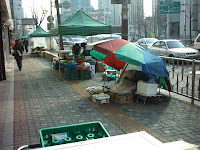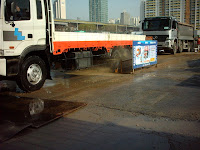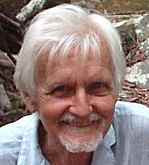The young lady then took me to the bus stop, where, fortunately, a bus was awaiting departure, informed the driver where I was to alight, and to make sure that I did so. She then proceeded to open her purse from which she extracted a phone card advising me that I would require it at the other end to phone the Hostel for the directions from there. To my astonishment, and gratitude, she refused to accept any recompense for her most kind assistance.
The bus driver duly fulfilled his role and ensured that I was deposited at the correct stop. This was most fortunate indeed, for if left to my own devices I am sure I would have become completely lost. My next step then, was to search for a phone. And after wandering around for close on an hour, and not finding one, realised that my chances of doing so seemed to be rather remote, to say the least.
For those of my readers who have travelled extensively in third world countries, you will all be familiar with the street stalls on the footpaths, where people lay out their wares, some directly on the pavement, without any sort of covering. Others, and I would consider them as being the more permanent stalls, often have quite sophisticated, canvas or plastic igloos to protect their wares from the elements. These stalls sell everything imaginable, including trash and treasure, clothing, hardware, fresh fruits and vegetables, as well as a wide range of cooked and prepared foods. Some appear for a day at a time, and these I presume, continually change their location. Others, and this appears to apply to the majority, are permanent, or at least semi-permanent.

It was to these people that I then turned to for help. The lady I approached soon made it obvious that she did not speak English - yet with the help of a little sign language I was able to communicate to her my immediate needs. She then proceeded to phone the Hostel, and upon ascertaining the directions, closed her stall, and literally took me by the hand to it. And she too, for all her kindness and disruption to her business, adamantly refused to accept any payment. I felt greatly blessed.
The street stalls which I have mentioned, are a phenomenon which is spreading to the first world countries too, the main difference being that whereas in the third world countries, the local authorities do not levy any fees or taxes, nor do they, as far as I could ascertain, where, and where they cannot set up their stalls. In the first world countries, it is just the opposite, with the stall holders paying a fee, and being limited in the areas that they may set up their stall.

The Hostel in Korea was one of the cleanest and best I have stayed in, and at the same time they continued to show me every courtesy that it was possible to do so. The rooms were small and clean - yet quite adequate, as long as you were not a person who suffered from claustrophobia. And with that proviso, I would have no hesitation in recommending it as place to stay if you were looking for budget accommodation without any frills.

During my stay I was interested to note that whereas I had held the impression of Korea as being more of a rural country and not as heavily populated as, say China, this was definitely not so. As I walked around I found whole blocks dedicated to the sale of one type of thing, as in engineering supplies, flowers, clothing or food. For us who come from the less populated countries, and where all the different wares are mixed with one-another, this is quite different. Of course, on reflection, it is a very sensible arrangement, thus enabling the buyer to move between the different sellers for comparison, much, much easier.

Another first for myself, at least, was to observe the different methods used to clean the wheels of the trucks carting soil from building sites so they would not end by dropping large amounts of it on the roadways and causing a traffic hazard. Previously I had observed in Australia, the washing of the wheels by hand held hose in some instances, although little care in this regard does not appear to be widely practiced. In Korea I observed them using an automated form which it was most interesting to see. They also seemed to take great care in ensuring that the wheels were quite clean before leaving the building site. The decision of whether they were sufficiently clean, was not left to the driver who never left the cabin of his truck, and followed the instructions of a man on the ground who supervised the whole process. It was not until the supervisor was completely satisfied that the driver was allowed to proceed.

My second impression was of the dryness which I had not expected at that time of the year. Whereas at other airports, and the entrances to the cities they were usually landscaped, with tree-lined roadways, and quite often masses of flower beds, this was not so in Seoul. Everywhere I looked it was tinder dry. And yes there were trees to be sure, yet even they looked starved of water. On the way into the city we passed many rural holdings, most of which appeared to be rice paddies, all of which were of this same dryness.
At the time that I wrote this it was raining, and I was therefore housebound. In consideration then, I would assume that although it was disruptive for myself, and for the street stallholders, for the countryside as a whole it was a wonderful blessing. In fact from that time on, almost to the end of my journey, at the end of May, I hardly experienced a day without rain, and mostly bitterly cold.
One of my memories of Seoul is of the colourful entrance doors to the houses. Each house appeared to have its own individually designed door. I am unable to say for sure if this is so - as an observer this is how it appeared to be. The effect, to my way of thinking at least, was most pleasing to the eye, being very aesthetically attractive, and at the same time providing a break from what would other wise have been a very mundane scene.


No comments:
Post a Comment